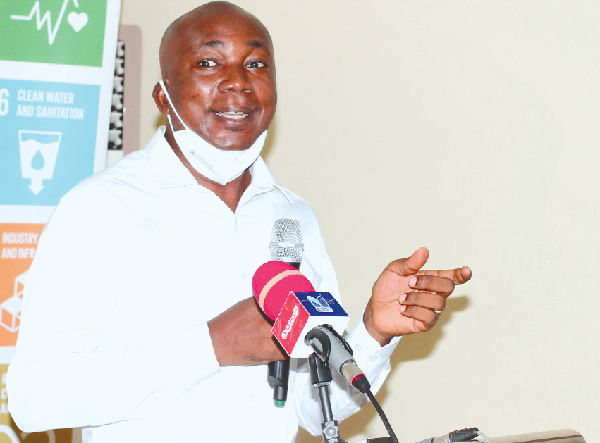
Participants call on govt to bridge inequality gaps
Participants in a forum have called on the government to work at reducing inequalities among the populace which they said can be found in all spheres of society.
According to them, it is when there is a level playing field for all people that the country can develop economically.
It was organised by SEND Ghana, with support from Oxfam, the multi-stakeholder forum on the commitment to reducing inequality index.
The forum brought together members of the Civil Society Organisation (CSO) platform on Sustainable Development Goals (SDGs) and representatives from some selected ministries such as Finance and Education.
Research
Speaking to a research conducted last year on the “State of Inequality in Ghana, the Citizenry Perspective”, a Senior Research Fellow, Centre for Social Policy Studies, University of Ghana, Dr George Domfe, said economic inequality was widening because a small but growing economic and political elite were capturing public policy processes and were leaving a large section of the population powerless and excluded from economic empowerment.
Dr Domfe, who was speaking on the views of citizens on economic inequality, also said economic inequality was also widening because the elite were able to illegally amass wealth through corruption and inefficient management of public resources.
On social inequality, he said, views from the citizenry were that enrolment and gender parity had increased at all levels. Yet, school attendance rates for both girls and boys living in households in the lowest expenditure quintiles was much lower compared to attendance rates of children living in the highest expenditure quintiles.
In the area of health inequalities, Dr Domfe said the research showed that about a quarter of children in the lowest wealth quintile were stunted compared to 8.5 per cent of children in the highest wealth quintile.
Also, almost 80 per cent of children in the lowest wealth quintiles were anaemic. This contrasts with 47 per cent of children in the highest wealth quintiles.
Political inequality
On political inequality, he said a high perception exists that there was no equal access to justice in the country, and laws generally favoured the rich and people who had easy access to political leaders.
Also, he said citizens were of the belief that Ghanaian politics was more about money while there was also the perception that political opportunities and benefits were not evenly distributed among the citizenry.
Speaking on the drivers of inequalities in the country, he said tax collection and administration of direct taxes linked to personal and corporate income in proportion to GDP were low and there was a growing reliance on indirect taxes which he said was regressive.
He recommended that the tax regime, especially, in the informal sector should be reviewed to ensure that both low-income and high-earning individuals paid fair taxes in accordance with their income levels.
Employment
An Economist and Professor of Finance, Prof. Godfred Alufar Bokpin of the University of Ghana Business School, who spoke on the Commitment to Reducing Inequality Index (CRII), said the unemployment rate in Ghana had almost tripled in little more than a decade, saying more than 1.55 million people or 13.4 per cent of the country’s economically active population were out of work.
Writer’s email:rebecca.quaicoe-duho@graphic.com.gh
